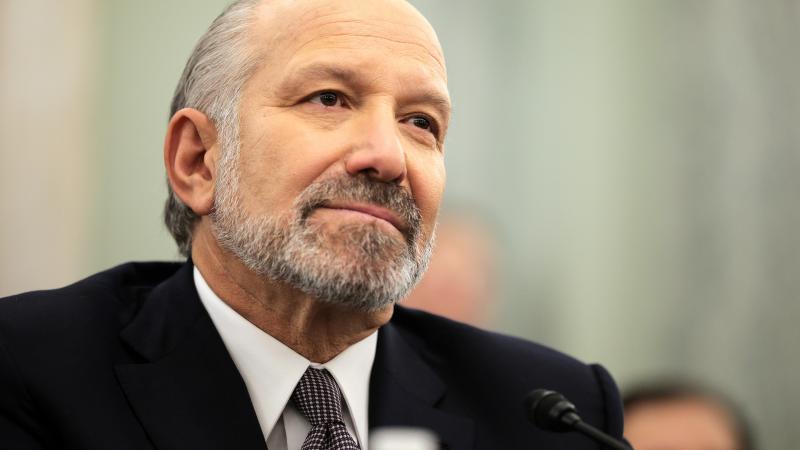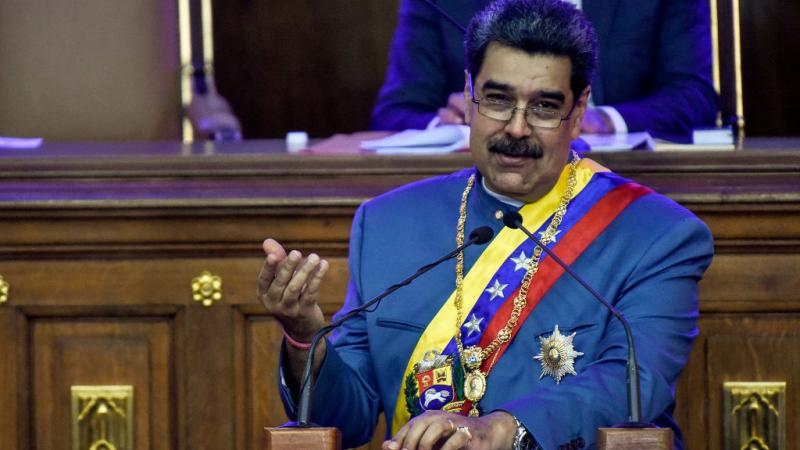Women's college swim team calls for policies that 'protect women'
Virginia’s Roanoke College women’s swimming team is calling upon the NCAA, USA Swimming and state lawmakers to develop policies.
Virginia’s Roanoke College women’s swimming team is calling upon the NCAA, USA Swimming and state lawmakers to develop policies that organize competitive sports according to biological sex, after a transgender student temporarily joined the swim team this season.
Ten team members spoke at the conference, along with women’s sports activists, former college swimmers Riley Gaines and Laura Scanlan, several women’s organizations and the girls’ parents.
The team finished second in its conference last season, and the women returned to school this year “hoping for a season that could be [their] best one yet,” said team captain, junior Lily Mullens.
When they returned, however, they learned that a transgender student would join their team. The trans swimmer formerly swam on the men’s team but had taken last season off while transitioning.
The team captains had serious misgivings about swimming with the trans student, as the swimmer had finished “ninth in the 500 freestyle” in the Division 3, Old Dominion Athletic Conference, and “eighth in the 100 fly,” on the men’s team, according to The Daily Mail.
Transgender swim champion Lia Thomas, formerly Will Thomas, was 462nd among male Division I swimmers before transitioning and subsequently won the 500-yard freestyle at the women’s NCAA Division national championship in 2022.
“This year is the first year in my life where [swimming] has been emotionally draining and painful. Knowing that biological men are allowed to compete in women’s sports has been the most disheartening experience of my life,” said junior Susanna Price at Thursday’s press conference.
Price went on to explain that knowing the fruit of her efforts would likely pale in comparison to that of her transgender teammate was “demoralizing” and caused her and others to begin “looking for a way out.”
Price started running track and rearranging her schedule to graduate early because she “did not know if [she] could remain motivated enough to stay on the swim team.”
She spoke of her younger sisters, also multi-sport athletes, and her hopes for them.
“I want my sisters to learn that if they work hard and dedicate themselves to something, they can achieve their goals… It doesn’t matter that they were born girls; they can still have the joys of sports,” she said.
The team attended “mandatory meetings night after night” with coaches and school representatives to discuss the issue but expressed Thursday that they felt “unheard” and “unseen.” In one meeting, the trans swimmer addressed those present and mentioned suicide.
“We tried numerous times to ask the school for support, but each and every time, we were told to deal with it ourselves or told nothing at all,” said team captain, sophomore Kate Pearson. “We were informed that even if our entire women’s team decided to stand together and not swim… our coach would be allowed to have a one-athlete swim team.”
Ultimately, after a month, the student withdrew from the team.
Roanoke College issued a statement after the press conference that the college’s Board of Trustees had met on Oct. 3 and decided to defer to the NCAA’s policy on transgender participation in athletics, which is phasing in a policy that defers to the national governing body of each sport – in this case, USA Swimming.
USA Swimming allows players to compete in sports according to gender identity.
Gaines and others at Thursday’s event addressed the Virginia General Assembly earlier this year on behalf of the Save Women’s Sports bill, which did not pass.















